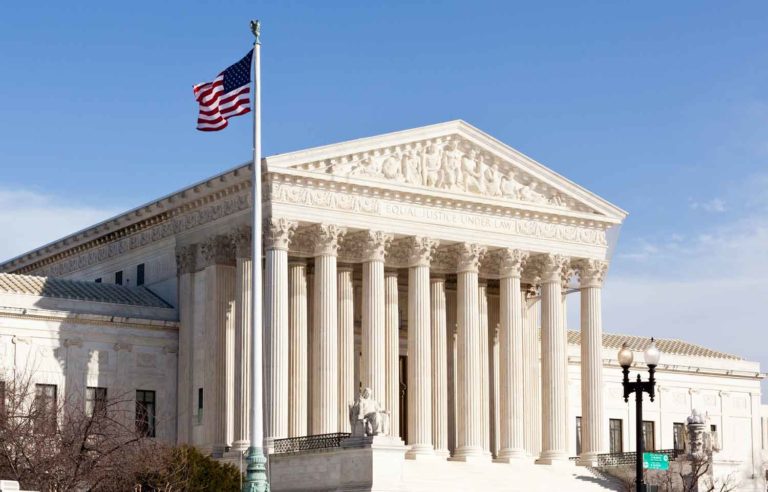
Supreme Court Justice Clarence Thomas, one of the most conservative Justices serving, issued a five page statement on the federal cannabis stance on June 28 in response to Standing Akimbo, LLC et al., v United States. In his statement, Justice Thomas called the federal prohibition on cannabis to be both “contradictory” and “unstable”. He also cited a few different instances in recent years where the court issued opposing viewpoints to the same situation.
Gonzales v Raich
In 2005, the Supreme Court heard the case of Gonzales v Raich. The Court narrowly determined that the federal government could enforce prohibition of cannabis against the cultivation of the plant that took place entirely in California, where medical cannabis was legal at the time. This ruling is based on the federal authority to regulate interstate commerce.
“Whatever the merits of Raich when it was decided, federal policies of the past 16 years have greatly undermined its reasoning,” Justice Thomas wrote. “Once comprehensive, the Federal Government’s current approach is a half-in, half-out regime that simultaneously tolerates and forbids local use of marijuana. This contradictory and unstable state of affairs strains basic principles of federalism and conceals traps for the unwary.”
Justice Thomas added, “though federal law still flatly forbids the intrastate possession, cultivation, or distribution of marijuana…the Government, post-Raich, has sent mixed signals on its views.”
Justice Department
One of the contradictions Justice Thomas mentioned happened under President Obama. Twice the Justice Department issued memorandums saying the federal government would tolerate cannabis-related activity if it’s legal in the state. One memorandum, known as the Cole Memo, gave guidelines on enforcing priorities for federal prosecutors. Any low-level cannabis offenses won’t be pursued; they aren’t a priority for the Justice Department.
Justice Thomas also brought up Congress. They have continuously approved a spending bill rider prohibiting the Justice Department from interfering with state medical cannabis programs.
“Given all these developments, one can certainly understand why an ordinary person might think that the Federal Government has retreated from its once-absolute ban on marijuana,” the Justice wrote. “One can also perhaps understand why business owners in Colorado…may think that their intrastate marijuana operations will be treated like any other enterprise that is legal under state law.”
“In other words, petitioners have found that the Government’s willingness to often look the other way on marijuana is more episodic than coherent,” Justice Thomas continued. “This disjuncture between the Government’s recent laissez-faire policies on marijuana and the actual operation of specific laws is not limited to the tax context.”
SAFE Banking Act
The final point Justice Thomas mentioned is the need for the SAFE Banking Act. Currently, the SAFE Banking Act (Secure and Fair Enforcement) offers protection to banks serving state-legal cannabis businesses. It passed the full US House and is waiting for a vote in the full US Senate. So in the meantime, most of the cannabis businesses operate on a cash basis, which is “understandably enticing to burglars and robbers.”
“I could go on. Suffice it to say, the Federal Government’s current approach to marijuana bears little resemblance to the watertight nationwide prohibition that a closely divided Court found necessary to justify the Government’s blanket prohibition in Raich,” Justice Thomas said. “If the Government is now content to allow States to act ‘as laboratories’ ‘and try novel social and economic experiments,’…then it might no longer have authority to intrude on ‘[t]he States’ core police powers…to define criminal law and to protect the health, safety, and welfare of their citizens.’”
“A prohibition on intrastate use or cultivation of marijuana may no longer be necessary or proper to support the Federal Government’s piecemeal approach,” Justice Thomas concluded his statement.
Response
Activists and advocates of cannabis legalization see this statement as a welcome voice on a blatant problem. Unfortunately, no direct action can take place with Justice Thomas’ statement. However, activists can move reform forward using the statement as a tool for change.
Make sure to check back for more cannabis and hemp related news.